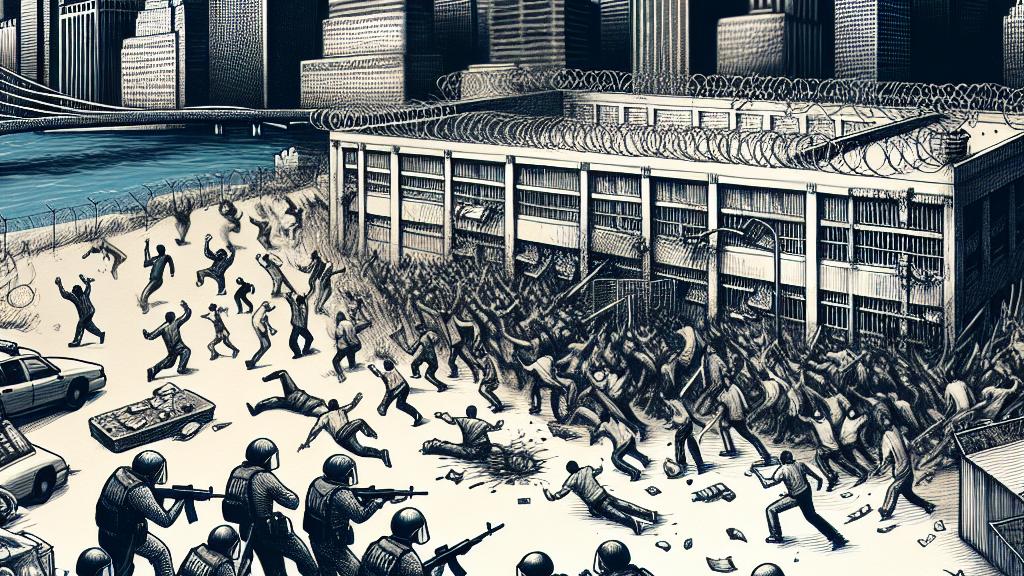Chaos Unleashed: 12 Lives Lost in Bangladesh's Twin Jailbreaks
Overview
- Twin jailbreaks in Bangladesh led to 12 inmate deaths and the escape of hundreds amidst widespread unrest.
- These incidents occurred following the ousting of Prime Minister Sheikh Hasina, sparking national chaos.
- The interim government is struggling to restore law and order as police strike in response to escalating violence.

The Context of Political Turmoil
The chaotic events surrounding the twin jailbreaks in Bangladesh unfolded after the unexpected resignation of Prime Minister Sheikh Hasina on August 5, 2024. The long-term leader faced an avalanche of public protests triggered by discontent over government corruption, authoritarian practices, and a flawed electoral process. As protests began peacefully, they quickly escalated into violent confrontations with security forces. Over the course of just a few weeks, nearly 450 lives were lost, including many police officers, creating a volatile atmosphere that saw an alarming increase in prison break attempts with over 800 inmates escaping from various correctional facilities.
Details of the Jailbreaks
In incidents reported on August 6 and August 8, the twin jailbreaks specified severe failures within the prison system. At Jamapur Prison, guards faced brutal attacks from convicts wielding weapons, which resulted in six inmates being shot and killed as authorities attempted to regain control. The Kashimpur High Security Prison incident saw another six inmates killed, along with the escape of 203 individuals, showcasing systematic vulnerabilities within the prison infrastructure. This outrageous violence forced officials to make life-or-death decisions, and the stark reality of the situation reflects the deepening crisis in Bangladesh's justice and penal systems.
The Ongoing Struggle for Order
In the aftermath of these jailbreaks, the interim government finds itself in a precarious position as it attempts to restore stability amid continuous unrest. Police unions announced a strike demanding better protection and job security following violent attacks, further complicating the law enforcement landscape. With half of Bangladesh's police stations reopening, the government is under pressure to act decisively to quell the violence and ensure public safety. This situation also exemplifies a broader trend in nations facing political upheaval, where the fallout extends beyond mere governance issues into areas of law enforcement, public trust, and human rights.

Loading...